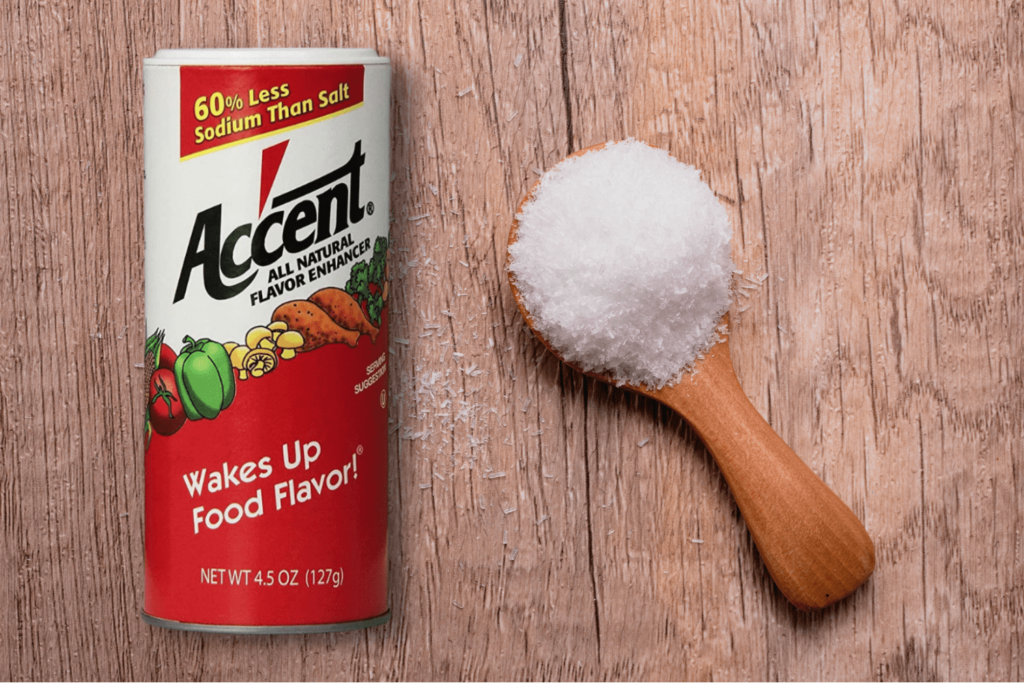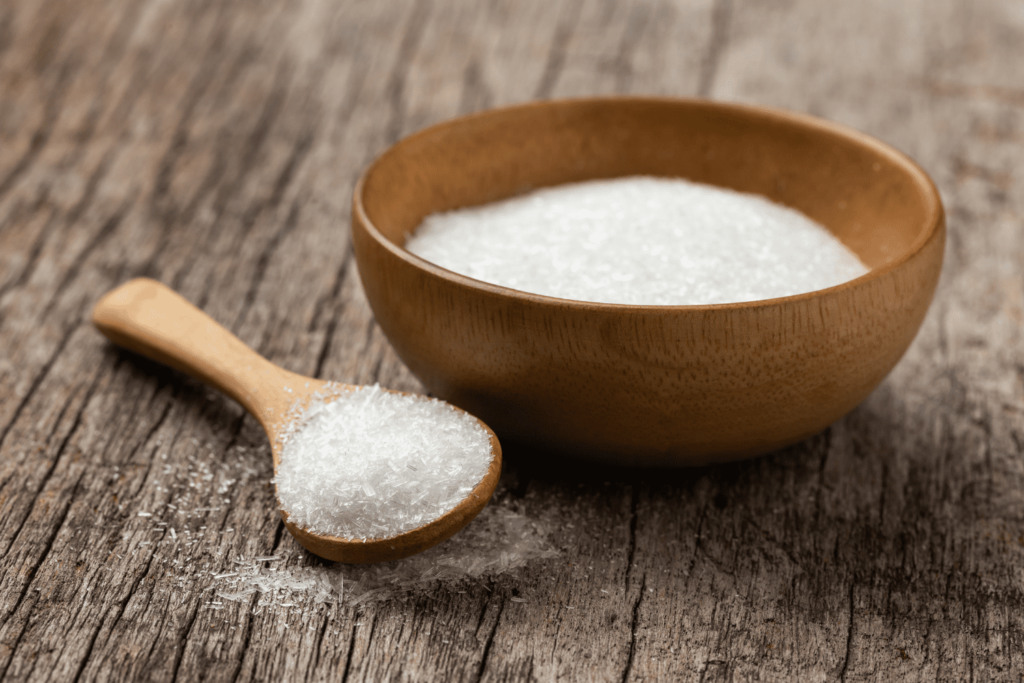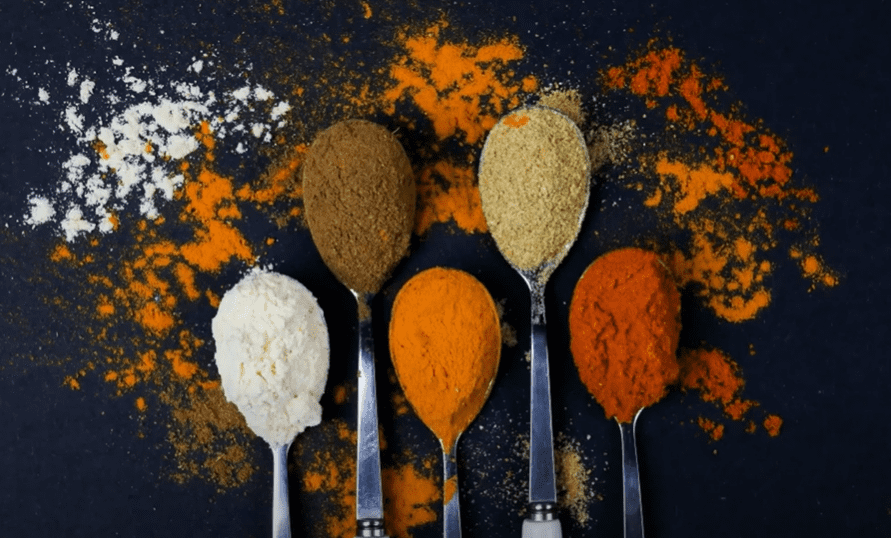In the vast realm of culinary exploration, where flavors and aromas intermingle, certain ingredients hold the power to elevate dishes to new heights. One such ingredient that has intrigued and captivated taste buds for decades is Accent seasoning. Have you ever wondered what is Accent seasoning and how it can enhance your culinary creations? Join us on a flavorful journey as we delve into the essence and allure of Accent seasoning.
What is Accent seasoning?
Accent seasoning is a powdered condiment comprising primarily of monosodium glutamate (MSG), a flavor enhancer commonly found in many foods. While MSG has been subject to some controversy in the past, it’s important to note that the FDA recognizes it as safe when consumed in moderate amounts. Accent seasoning offers a unique umami taste, which is often described as a savory, meaty flavor that enhances the overall perception of deliciousness in a dish.
What is in Accent seasoning?
- Monosodium Glutamate (MSG): This is the main component of Accent seasoning and is responsible for enhancing the natural flavors of foods.
- Salt: Salt is a common ingredient in many spice blends and seasonings, including Accent seasoning. It helps to enhance the overall taste of dishes.
- Onion Powder: Onion powder is derived from dehydrated onions and adds a savory and slightly sweet flavor to the seasoning blend.
- Garlic Powder: Garlic powder is made from dehydrated garlic cloves and imparts a distinct and aromatic garlic flavor to the seasoning.
- Tricalcium Phosphate: Tricalcium phosphate is a mineral compound that is added as an anti-caking agent to prevent clumping in the seasoning.
What does Accent seasoning taste like?
Accent seasoning has a unique taste profile that can be described as umami. Umami is often referred to as the fifth basic taste, alongside sweet, sour, salty, and bitter. Umami is characterized as a savory, rich, and meaty flavor.
When used in dishes, Accent seasoning enhances the natural flavors and adds depth to the overall taste. It doesn’t have a dominant taste of its own but rather intensifies and amplifies the existing flavors in the food. It can bring out the savory notes in meat dishes, enhance the earthiness of vegetables, and add an extra layer of deliciousness to various cuisines.

What is Accent seasoning used for?
- Enhancing Meat Dishes: Accent seasoning is often used to intensify the savory flavors of meat-based dishes, such as stews, roasts, grilled meats, and stir-fries. It helps to bring out the natural richness and depth of the meat, making it more flavorful and satisfying.
- Elevating Vegetarian and Vegan Dishes: Even without meat, vegetarian and vegan dishes can benefit from the umami boost that Accent seasoning provides. It adds depth and complexity to vegetable-based recipes, soups, sauces, and plant-based protein substitutes like tofu or tempeh.
- Improving Soups and Stocks: Accent seasoning can be added to soups, broths, and stocks to enhance the overall flavor profile. It helps to create a more robust and savory base, making the soup or stock more delicious.
- Seasoning Sauces and Dressings: Accent seasoning can be incorporated into various sauces, dressings, and marinades to enhance their taste. It adds a savory note that elevates the overall flavor and makes the sauce more appetizing.
- Flavoring Side Dishes: Accent seasoning can be sprinkled over side dishes like rice, pasta, mashed potatoes, or roasted vegetables to impart a subtle umami taste. It can take these simple sides to a new level by enhancing their flavors and making them more satisfying.
- Improving Snacks and Appetizers: Accent seasoning can be used to add an extra kick to snacks and appetizers. It can be sprinkled over popcorn, roasted nuts, homemade chips, or even mixed into dips and spreads to elevate their taste and make them more enjoyable.
What is a substitute for Accent seasoning?
- Salt: Salt is a basic seasoning that can enhance the taste of your food. While it may not provide the same umami flavor as Accent seasoning, it can still contribute to the overall flavor profile.
- Bouillon Powder: Bouillon powder, either in chicken, beef, or vegetable flavors, can be a suitable substitute. It adds depth and savory notes to your dishes, similar to Accent seasoning.
- Herbs and Spices Substitute: A combination of herbs and spices can help replicate the flavor complexity of Accent seasoning. For example, you can use a blend of onion powder, garlic powder, paprika, thyme, and black pepper to achieve a similar effect.
- Soy Sauce: Soy sauce is rich in umami flavor and can be used as a substitute for Accent seasoning. It adds depth and savory notes to dishes, particularly Asian-inspired recipes.
- Creole Seasoning: Creole seasoning is a flavorful blend that often contains a combination of herbs, spices, and salt. It can provide a well-rounded taste and can be used as an alternative to Accent seasoning in various recipes.
See more: Is Ponzu Sauce Gluten-Free?
How much sodium is in Accent seasoning?
The exact amount of sodium may vary slightly depending on the specific brand and formulation of Accent seasoning. However, on average, Accent seasoning typically contains around 50-80 milligrams (mg) of sodium per 0.5 grams (g) serving. This is significantly lower than regular salt, which contains approximately 196 mg of sodium per 0.5 g serving.
Accent seasoning nutritional information

Is Accent seasoning healthy? What is Accent seasoning good on?
The healthiness of Accent seasoning can be subjective, and opinions vary regarding its potential effects on health. While some people express concerns about the presence of monosodium glutamate (MSG) in Accent seasoning, it’s important to note that the U.S. Food and Drug Administration (FDA) recognizes MSG as safe when consumed in moderate amounts. However, individuals who are sensitive to MSG or have certain health conditions may choose to avoid or limit its consumption.
In terms of its usage, Accent seasoning can be a versatile addition to various dishes. It is often used to enhance the flavors of meats, poultry, vegetables, soups, and salads. It can help add a savory depth and richness to these dishes, making them more enjoyable.
Why is Accent seasoning bad for you?
The perception of Accent seasoning being “bad” for you is primarily associated with concerns surrounding its main component, monosodium glutamate (MSG). However, it’s important to note that the FDA recognizes MSG as safe for consumption when used in moderate amounts. The general consensus among experts is that MSG is safe for most people, although a small percentage of individuals may be sensitive to it and experience symptoms such as headaches, flushing, or sweating.
The negative perception of Accent seasoning is often based on anecdotal reports and outdated studies linking MSG to adverse effects, commonly known as “Chinese Restaurant Syndrome.” However, subsequent research has failed to consistently replicate these findings or provide substantial evidence supporting the syndrome.
How much Accent seasoning to use?
To use Accent seasoning, the recommended amounts are as follows:
- For meat: Add 1/2 teaspoon of Accent seasoning per pound of meat. This will help enhance the flavors of the meat and add a savory boost.
- For soups, stews, casseroles, sauces, salads, and vegetables: Add 1/2 teaspoon of Accent seasoning for every 4 to 6 servings of the dish. This will help elevate the taste and bring out the flavors in these preparations.
Does Accent expire?
To ensure the best quality and taste, it is recommended to use Accent seasoning within a reasonable timeframe. While there is no fixed expiration date, it’s generally advisable to use it within two to three years from the date of purchase. This timeframe ensures that the seasoning maintains its optimal flavor and effectiveness.

How to store Accent seasoning?
If you notice any changes in the flavor, texture, or appearance of Accent seasoning, such as a loss of potency or an off odor, it is best to discard it and replace it with a fresh bottle. Proper storage in a cool, dry place away from light can help prolong the shelf life and maintain the quality of the seasoning.
How to make Accent seasoning at home?
Ingredients:
- 20 tablespoons of salt
- 3 tablespoons of black pepper
- 3 tablespoons of garlic powder
- 3 tablespoons of onion powder
- 3 tablespoons of chili powder
- 5 tablespoons of cayenne pepper
- 1 tablespoon of dried thyme
- 1 tablespoon of dried basil
Instructions:
- In a mixing bowl, combine the salt, black pepper, garlic powder, onion powder, chili powder, cayenne pepper, dried thyme, and dried basil.
- Stir the ingredients together until well blended.
- Transfer the DIY Accent seasoning to an airtight container or spice jar for storage.
- Store the seasoning in a cool, dry place away from direct light.

FAQs
Is Accent seasoning the same as seasoning salt?
No, Accent seasoning is not the same as seasoning salt.
Accent seasoning is primarily made up of monosodium glutamate (MSG), which is a flavor enhancer. It is designed to enhance the savory taste of dishes without adding a significant amount of salt.
On the other hand, seasoning salt, also known as seasoned salt, is a blend of salt and various herbs, spices, and other flavorings. It typically contains ingredients such as salt, paprika, garlic powder, onion powder, and other herbs and spices. Seasoning salt is used to add flavor to dishes by combining the savory taste of salt with additional aromatic and flavorful ingredients.
Is Accent a meat tenderizer?
Accent seasoning is not specifically marketed or designed as a meat tenderizer. If you are looking to tenderize meat, there are specific techniques and ingredients you can use.
For example, marinating meat in acidic ingredients like vinegar or citrus juice, using enzymatic tenderizers like pineapple or papaya, or employing mechanical methods like pounding or using a meat mallet can help break down the muscle fibers and result in a more tender meat texture.
How long has Accent seasoning been around?
Accent seasoning has been around since 1947, making it a trusted choice for enhancing the flavors of various foods for over several generations. With its remarkable ability to bring out the taste and enhance the flavors of meats, poultry, fish, salads, vegetables, sauces, casseroles, soups, and stews, Accent seasoning has been a staple in kitchens for many decades. Its long history of use speaks to its popularity and effectiveness in elevating the taste of favorite recipes.
Conclusion
Accent seasoning is a flavor enhancer commonly used to add a savory boost to various dishes. It is a blend of monosodium glutamate (MSG) and salt, designed to elevate the flavors of meats, poultry, vegetables, soups, salads, and more. While there are differing opinions about its health effects, the FDA recognizes MSG as safe for consumption in moderate amounts. Accent seasoning can be a valuable addition to your culinary repertoire, providing an umami taste that wakes up the flavors in your favorite recipes. However, it’s important to use it in moderation and consider individual preferences and dietary needs. With proper storage and careful usage, Accent seasoning can be a useful tool in enhancing the taste of your dishes, making your meals even more enjoyable.